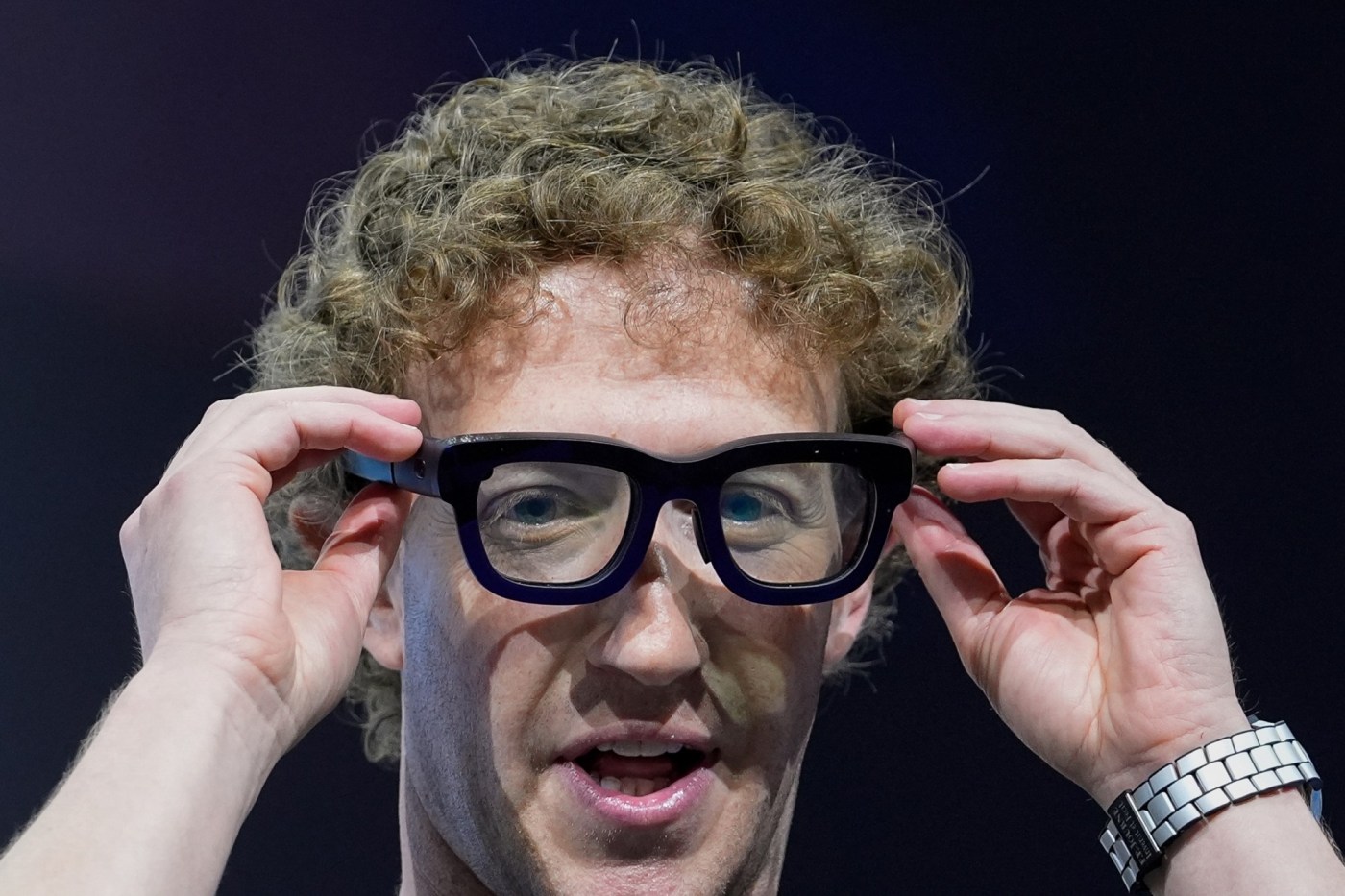
(Bloomberg/Tommaso Ebhardt and Chiara Albanese) — The world’s biggest eyewear maker is positioning itself as a leader in the emerging category of smart glasses, a device that could become as prevalent as an iPhone.
EssilorLuxottica SA — owner of Ray-Ban, Oakley and Persol — has teamed up with Meta Platforms Inc. to manufacture and sell AI-equipped eyewear, wearable tech that Silicon Valley giants have extolled as the next consumer-tech blockbuster.
“Glasses, which have long been seen as prosthetics and later as fashion accessories, are poised to become the central device in people’s lives, possibly replacing smartphones,” Chairman and Chief Executive Officer Francesco Milleri said on Bloomberg’s Italian-language podcast, Quello Che i Soldi Non Dicono. “We could foresee in the near future hundreds of millions of smart glasses interconnected with each other, and with the people who wear them creating huge communities.”
Related Articles
Magid: For AI and Zoom, Pixel 10 Pro leaves iPhone behind
Elon Musk agrees to settle with fired Twitter execs over severance dispute
OpenAI wants to build the next era of the web, and it’s shelling out billions to do it
XAI to Raise $20 Billion After Nvidia and Others Boost Round
CareerBuilder, job website toppled by AI, wraps liquidation
Milleri said the company was expanding its production capacity for Ray-Ban Meta, set to reach 10 million annual units by the end of next year. This could also be used for other smart glasses, as well as EssilorLuxottica’s Nuance Audio glasses which integrate hearing assistance.
The push into smart glasses by Meta, Apple Inc. and others dovetails with Milleri’s long-term strategy to expand the French-Italian company by adding wearables and medical technology, while preserving its dominance in traditional eyewear, he said in a rare interview.
The 65-year-old executive was Luxottica founder Leonardo Del Vecchio’s closest aide, and took over the chairman role in 2022 after Del Vecchio died. Since then, the company’s market value has more than doubled to over €125 billion ($146 billion).
While Milleri avoids the limelight, he’s been building on the vertically integrated platform Del Vecchio created by expanding Italy’s Luxottica through acquisitions, combining it with French lens maker Essilor in 2018. Retail outlets such as Sunglass Hut in the US give EssilorLuxottica unparalleled distribution clout and direct access to consumers, while licensing deals add luxury brands such as Prada and Armani.
Vertical Integration
The next step is to use EssilorLuxottica’s array of laboratories, factories and stores to develop and sell innovative, higher-cost products like myopia-correcting lenses, medical technology used in doctor-patient settings, and the wearables venture embodied by the partnership with Meta.
While the Meta collaboration generated an estimated €365 million in revenue for EssilorLuxottica in 2024, the total could approach €800 million this year and surpass €6 billion by 2030, based on the most optimistic projections from Barclays. The analysts see room for industry smart glasses sales to rise from about 3 million units a year to 60 million by 2035.
Smart glasses offer users a form of augmented reality, with features such messages or directions projected onto the lens, or voice-activated AI assistants. Meta is spending billions to turn smart glasses into become a primary way users experience Meta’s AI products and services. The social-networking giant has invested $3.5 billion in EssilorLuxottica, taking about a 3% equity stake, people familiar with the matter said earlier this year.
As the category grows, the partners face increased competition from Chinese and U.S. peers. There’s also no certainty that the technology will catch fire with consumers — Meta’s foray into virtual reality headsets, for example, remains a work in progress.
In a recent sign that smart glasses are gaining traction, Apple has followed in Meta’s footsteps — shelving an overhaul of its Vision Pro headset to redirect resources toward developing smart glasses, Bloomberg reported this month.
Last month, Meta founder and CEO Mark Zuckerberg unveiled the $799 Meta Ray-Ban Display, featuring a screen in the right lens that can show text messages, video calls, turn-by-turn directions and visual results from queries to Meta’s AI service. The display can also serve as a viewfinder for the camera on a user’s phone and surface music playback.
Over time, Zuckerberg envisions people doing more tasks on their smart glasses. “We’re going to get to this point, probably sometime in the 2030s, where you have your phone with you, but it’s going to stay in your pocket more,” he said in March.
Milleri, who deals directly with Zuckerberg on the smart-glasses project, said it’s important for EssilorLuxottica to leverage its strengths by cooperating with leaders in other industries. “Only a collaborative model — a networked company — can maintain leadership in innovation and technology,” he said.
Medical Tech, Bank Deals
Beyond smart glasses, EssilorLuxottica is investing in medical technology, including AI applications in the clinical field — and even venturing beyond ophthalmology, Milleri said.
In 2024, the company acquired the streetwear brand Supreme to expand ties with younger consumers. EssilorLuxottica has the opportunity to also bid for Giorgio Armani SpA, after being mentioned as a possible investor by the late designer in his will. Milleri didn’t elaborate beyond an earlier statement calling the Italian fashion house an “evolutionary prospect.”
The EssilorLuxottica CEO has also been a main character in the Italian banking industry’s recent M&A spree, as head of the Del Vecchio family’s holding company, Delfin Sarl. It has supported Banca Monte dei Paschi di Siena SpA’s acquisition of Mediobanca, and becoming the buyer’s single biggest investor with a 17.5% stake.
Still, glasses will remain central to EssiloLuxottica’s future.
“Technology, digital, and superintelligence will open up interactions with worlds that are now completely remote,” Milleri said in the interview. “Not just social and medical, but we’ll see the application of our wearable computing in the world of home automation, entertainment, autonomous driving, or air, light, and sound quality control.”
More stories like this are available on bloomberg.com
©2025 Bloomberg L.P.